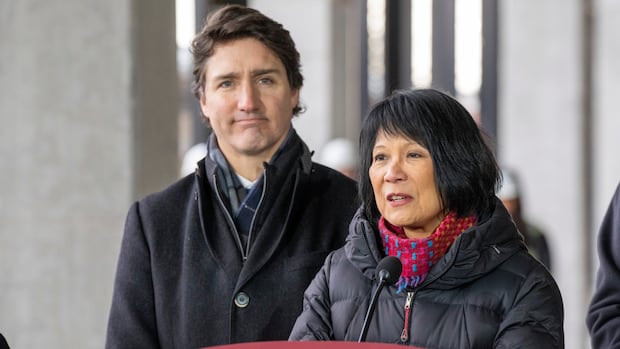
What Trudeau's resignation could mean for Toronto
CBC
When Toronto city Coun. Alejandra Bravo heard Prime Minister Justin Trudeau's resignation announcement, her first reaction was, "What does this mean for Toronto?"
Trudeau's resignation as Liberal Leader, the leadership race it is triggering and a subsequent federal election mean not only upheaval and uncertainty in Ottawa, but also for municipalities that rely on federal money to fund major priorities.
"Municipalities have to deal with the fallout. And we don't necessarily have the tools, and we definitely don't have the funding to meet the challenges that we face," Bravo said.
Those challenges include transit and housing — both priorities the federal government has committed money to — and which elected officials like Bravo, and advocates, will be looking at closely amid the uncertain political future in Ottawa.
Mayor Olivia Chow did not speak with media following Trudeau's announcement on Monday, but in a brief statement, she thanked him for his service and said she would "stay focused" on her priorities.
One of the federal government's recent promises to the city came in November, with an announcement of $1.2 billion for the TTC — a majority going toward purchasing new subway cars for Line 2.
"We know that we need those trains for our transit system, to move people to work, to school, around the city, to fight congestion. They're a crucial part of the local economy. If we don't get those new subway trains it really imperils the whole transit system," said Bravo.
An earlier key announcement was in late 2023, when Ottawa announced Toronto would receive $471 million over three years through the Housing Accelerator Fund, to help the city build nearly 12,000 more homes.
The future of the program could now be in jeopardy, depending on the outcome of the next federal election. Conservative Leader Pierre Poilievre has previously said he would scrap it.
"It's always a challenge when it comes to the affordable housing world, because it requires all three levels of government to be stable and collaborative with one another," said Mark Richardson, volunteer technical lead with the advocacy group HousingNowTO.
Richardson said he was hopeful that there would be significant progress on a number of housing projects this year, but with the timing of Trudeau's announcement and the need for the city to build relationships with new federal leaders, he's now concerned that won't be the case.
"Now the next six to nine months is going to be around political engagement, education, advocacy, dealing with the campaigns, dealing with the candidates, dealing with all of that stuff — which isn't getting shovels in the ground and getting things built," Richardson said.
Despite the challenges, some housing advocates think the changes in Ottawa could have some positive implications for the city and its focus on housing.
"Times of uncertainty and change always are opportunities," said Brian Cheung, a board member for the advocacy group More Neighbours Toronto.





















 Run 3 Space | Play Space Running Game
Run 3 Space | Play Space Running Game Traffic Jam 3D | Online Racing Game
Traffic Jam 3D | Online Racing Game Duck Hunt | Play Old Classic Game
Duck Hunt | Play Old Classic Game











